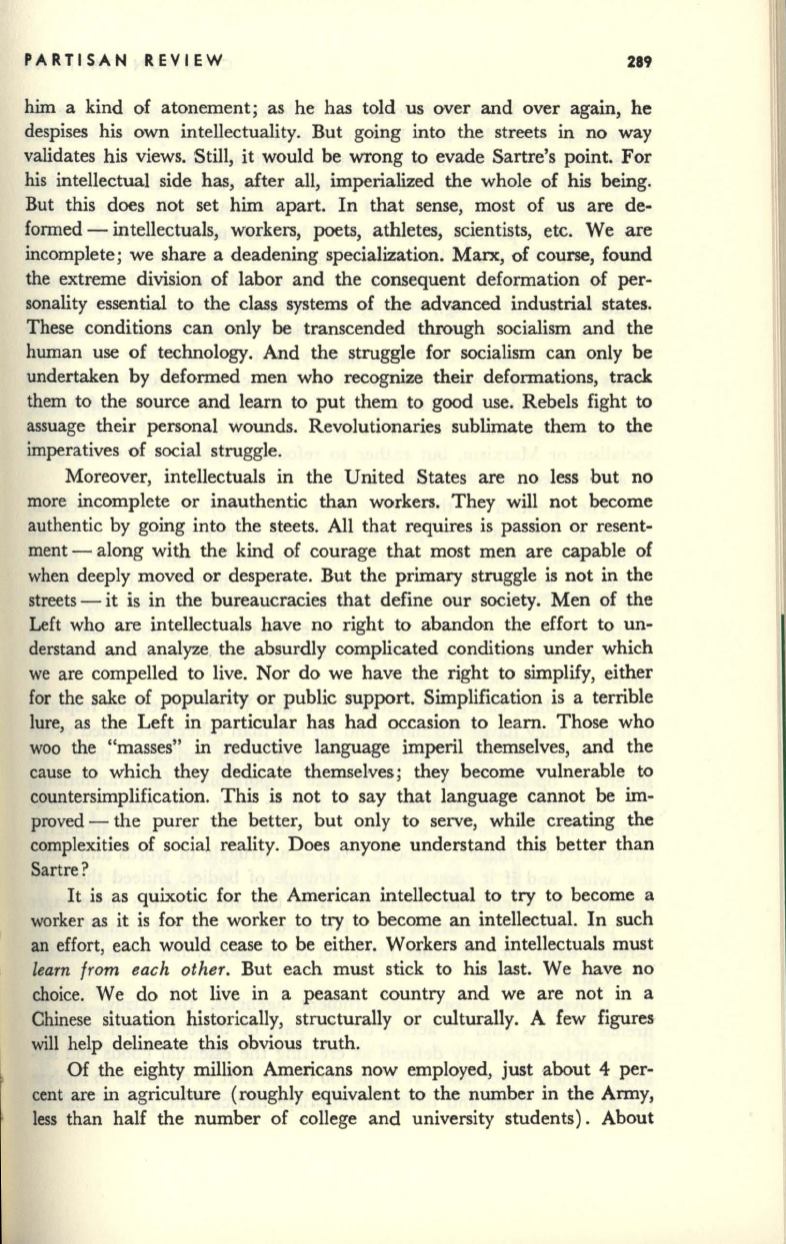
PARTISAN REVIEW
289
him a kind of atonement; as he has told us over and over again, he
despises his own intellectuality. But going into the streets in no way
validates his views. Still, it would be wrong to evade Sartre's point. For
his intellectual side
has,
after all, imperialized the whole of his being.
But this does not set him apart. In that sense, most of us are de–
fonned - intellectuals, workers, poets, athletes, scientists, etc. We are
incomplete; we share a deadening specialization. Marx, of course, found
the extreme division of labor and the consequent defonnation of per–
sonality essential to the class systems of the advanced industrial states.
These conditions can only be transcended through socialism and the
human use of technology. And the struggle for socialism can only be
undertaken by deformed men who recognize their deformations, track
them to the source and learn to put them to good use. Rebels fight to
assuage their personal wounds. Revolutionaries sublimate them to the
imperatives of social struggle.
Moreover, intellectuals in the United States are no less but no
more incomplete or inauthentic than workers. They will not become
authentic by going into the steets. All that requires is passion or resent–
ment - along with the kind of courage that most men are capable of
when deeply moved or desperate. But the primary struggle is not in the
streets - it is in the bureaucracies that define our society. Men of the
Left who are intellectuals have no right to a:bandon the effort to un–
derstand and analyze. the absurdly complicated conditions under which
we are compelled to live. Nor do we have the right to simplify, either
for the sake of popularity or public support. Simplification is a terrible
lure, as the Left in particular has had occasion to learn. Those who
woo the "masses" in reductive language imperil themselves, and the
cause to which they dedicate themselves; they become vulnerable to
countersimplification. This is not to say that language cannot be im–
proved - the purer the better, but only to serve, while creating the
complexities of social reality. Does anyone understand this better than
Sartre?
It is as quixotic for the American intellectual to try to become a
worker
as
it is for the worker to try to become an intellectual. In such
an effort, each would cease to be either. Workers and intellectuals must
learn from each other.
But each must stick to his last. We have no
choice. We do not live in a peasant country and we are not in a
Chinese situation historically, structurally or culturally. A few figures
will help delineate this obvious truth.
Of the eighty million Americans now employed, just -about 4 per–
cent are in agriculture (roughly equivalent to the number in the Army,
less than half the number of college and university students). About


